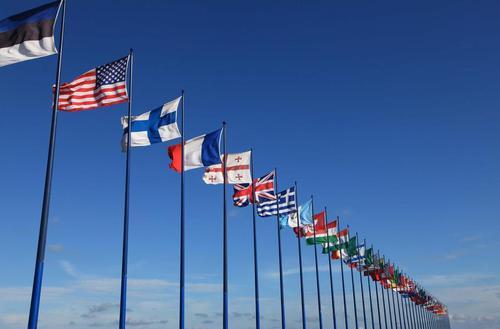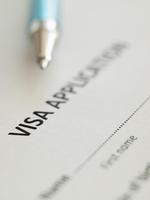A-1 Visas in Nevada are non-immigrant visas issued to foreign government officials who are traveling to the U.S. to carry out official duties. Specifically, A-1 Visas are issued to
- heads of state,
- public ministers,
- ambassadors,
- career diplomats,
- officers,
- carrier couriers, and
- their immediate family.
It is common for A-1 visas to be issued for travel to Nevada for official diplomatic business, and also to attend conventions and diplomatic conferences in Las Vegas.
Below our Las Vegas immigration attorneys answer frequently-asked-questions about diplomat visas in Nevada.
- 1. Can I get an A-1 visa in Las Vegas, NV?
- 2. How do I get an A-1 visa?
- 3. How long does it take to get an A-1 visa for Las Vegas, NV?
- 4. How long is an A-1 visa good for?
- 5. How much does it cost to get an A-1 visa?
- 6. Can my family come with me on an A-1 visa to Las Vegas, NV?
- 7. Can my personal employees come with me on an A-1 visa?
- 8. Can I get an A-1 visa if I am just traveling as a tourist or to visit?
Also see our articles on A-2 Visas in Nevada and G Visas in Nevada.

1. Am I eligible for an A-1 visa in Las Vegas?
To receive an A-1 Visa, the foreigner has to be traveling to the U.S. on behalf of his/her national government to engage solely in official activities of that government. A-1 Visas are reserved for the following people:
- Heads of State
- Public Ministers
- Ambassadors
- Career Diplomats
- Officers
- Carrier couriers
- Immediate family members of the principal diplomatic holders of an A-1 visa
Note that government interest or control in any given organization is not the defining factor when determining if an individual is eligible for an A-1 Visa; there have to be explicit duties or services that are governmental in nature.
2. What is the application process for an A-1 visa?
A-1 visas are unique in that visa interviews are often not required. A-1 Visa applicants need to produce the following documents, forms, and paperwork to United States Citizenship and Immigration Services (USCIS):
- A completed Form DS-160;
- An application for A Visa Form DS-1648;
- A diplomatic note: This document serves as confirmation by the foreign government of the applicant’s status;
- A passport: This passport must be good for U.S. travel and have a validity date no less than six (6) months beyond the applicant’s intended period of visitation in the U.S.;
- A photograph; and
- A copy of both the visa and paper Form I-94 for an immediate family member who is applying separately from the principal visa applicant.

3. What is the time frame for getting an A-1 visa?
The A-1 Visa is usually issued within the day of the diplomat applying for it. The A-1 Visa is given in the form of a passport stamp.
4. When do A-1 visas expire?
A-1 Visa-holders can remain in the U.S. so long as the U.S. Secretary of State recognizes him/her as a member of the diplomatic community. Note that A-1 Visa-holders can extend their stay by renewing their accreditation with the Department of State. The USCIS does not have to sign off on this renewal.
5. What is the fee for an A-1 visa?
There are no fees for an A-1 Visa.
6. Can my spouse and children accompany me on an A-1 visa to Las Vegas?
Yes. In fact, A-1 Visa-holders are allowed to bring any member of his/her immediate family, any member of his/her spouse’s immediate family, and any close relatives.
7. Can I bring my assistant with me on an A-1 visa?
Yes, but the assistant must apply for an A-3 Visa in order to accompany the A-1 Visa-holder.
8. Can I get an A-1 visa if I am in Las Vegas, Nevada, just for a vacation?
No. If the government official is traveling to the U.S. for non-governmental functions, he/she is not qualified for an A-1 Visa and has to apply for another visa that comprises the true purpose of the trip (commercial business or tourist activities). There are other types of visas the applicant could pursue for taking a vacation, such as B Visas in Nevada.

